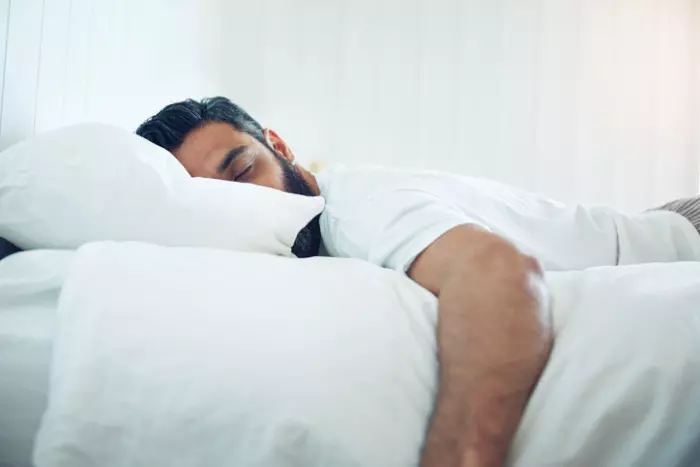You’ve crawled into bed after a long day and you’re so tired you can barely keep your eyes open. But somehow, even though you’re exhausted, you have a lousy night’s sleep. This problem is more common than you might think. Between 35% and 40% of New Zealanders either struggle to sleep well or don’t sleep for long enough – and it’s impacting on our health and how well we function each day.
When we don’t get enough sleep, everything is more difficult. It affects our mood, how we feel about ourselves and our lives, the food choices we make (say hello to that 10am muffin and coffee and 3pm chocolate-biscuit binge) and how we speak to those we love most in the world.
Lack of sleep can increase inflammation in the body, which in turn is a risk factor for type-2 diabetes, heart disease, high blood pressure and poor digestive health. It also adds another layer of stress to the body since it doesn’t have sufficient time to repair and restore.
Sleep deprivation can become dangerous when it significantly interferes with your level of alertness during the day, particularly if you’re driving a vehicle or operating machinery for work. But besides the more obvious danger of nodding off behind the wheel, poor sleep impairs productivity. When we are sleep deprived, we may find ourselves barely able to focus enough to get through the day, let alone accomplish anything of significance.
We can’t fight our biology – sleep is essential to our very being. Getting quality sleep at the recommended 7-9 hours each night can make the world of difference to our energy and vitality. So, if you’re that tired, why is it you can’t get the sleep your body is craving? Here are some things that might be inadvertently impacting on the restorative power of your sleep.
Explore your perceptions of pressure and urgency
Many people have restless sleep as they mentally review to-do lists and what still needs to be done. This can lead to adrenaline production, stimulating the fight-or-flight response. Adrenaline does not want you to sleep deeply as it communicates to your body that your life is in danger. Keep a pen and paper handy to capture your thoughts for the next day or perhaps make writing your to-do list for the following day part of your evening routine to help clear your mind before transitioning to sleep time. Commit to long, slow diaphragmatic breaths before bed, as this helps to decrease stress-hormone production and activates the calm arm of the nervous system.
Asking your body to switch to sleep mode without winding down
If you’re go go go from the moment you wake up in the morning until you turn off your light at night, you’re asking a lot of your body to flip into sleep mode immediately. We need to give our bodies and our minds a chance to slow down. Try incorporating an evening ritual that allows you to wind down from your day. Breath work, meditation, gentle stretching or a cup of herbal tea and reading a few pages of a book in bed can signal to the body that it’s time to prepare for sleep when done routinely.
Drinking too much caffeine
Caffeine stays in our system for around eight hours, so if you’re consuming it later in the day, it could be impacting on your ability to wind down enough to fall asleep easily. Caffeine affects everyone differently and some will be more sensitive to it than others. Find your threshold on caffeine consumption through the day – typically it is around midday. Reducing coffee consumption to one cup a day or omitting it for a while can also be incredibly helpful.
Too many screens or bright lights before bed
Darkness is a natural cue to the body that it’s time to sleep, allowing melatonin (our sleep hormone) to be produced. Yet many people are preventing this natural cycle by exposing themselves to too much light – particularly blue light – after the sun has gone down. Create a new habit of not using backlit devices (including television) for 90 minutes prior to sleep if sleep quality is a problem for you. If you must sleep with your phone near you, switch to flight mode or equivalent to prevent any notifications or noises in the middle of the night. Keep lighting in the house low and warm; opt for lamp or dimmed lighting at least two hours before bed. If you have streetlights visible from your windows, try to block them out with curtains or a blind.
Drinking too much alcohol for you
Alcohol typically makes you feel sleepy at first, which is why people often use it to help them get off to sleep. It tends to result in waking later in the night, however, typically around 2-3am – resulting in disrupted sleep. Limiting alcohol consumption is beneficial for overall health, not just for your sleep. If alcohol consumption is unavoidable, stick to the maximum of two standard drinks a day and aim to give yourself at least two alcohol-free days a week.
Nutritional biochemist Dr Libby Weaver (PhD) is a 13-times bestselling author and speaker.














